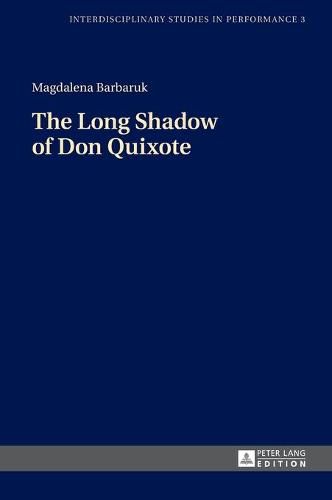Readings Newsletter
Become a Readings Member to make your shopping experience even easier.
Sign in or sign up for free!
You’re not far away from qualifying for FREE standard shipping within Australia
You’ve qualified for FREE standard shipping within Australia
The cart is loading…






This title is printed to order. This book may have been self-published. If so, we cannot guarantee the quality of the content. In the main most books will have gone through the editing process however some may not. We therefore suggest that you be aware of this before ordering this book. If in doubt check either the author or publisher’s details as we are unable to accept any returns unless they are faulty. Please contact us if you have any questions.
The author traces the resurgence of Don Quixote in the contemporary humanities. In the aftermath of World War II, the figure underwent the most radical re-interpretation since Romanticism. These changes speak volumes about our culture. Drawing on the theoretical framework of the specifically Polish variety of cultural studies, this book makes Don Quixote a patron of cultural reflection. With culture conceptualised as performative, Quixotism is the cultivation of the soul, an axiotic space which forms human ways of life across epochs. In this way, the history of culture can be re-written as a history of values frenzy, bibliomania or evil.
$9.00 standard shipping within Australia
FREE standard shipping within Australia for orders over $100.00
Express & International shipping calculated at checkout
This title is printed to order. This book may have been self-published. If so, we cannot guarantee the quality of the content. In the main most books will have gone through the editing process however some may not. We therefore suggest that you be aware of this before ordering this book. If in doubt check either the author or publisher’s details as we are unable to accept any returns unless they are faulty. Please contact us if you have any questions.
The author traces the resurgence of Don Quixote in the contemporary humanities. In the aftermath of World War II, the figure underwent the most radical re-interpretation since Romanticism. These changes speak volumes about our culture. Drawing on the theoretical framework of the specifically Polish variety of cultural studies, this book makes Don Quixote a patron of cultural reflection. With culture conceptualised as performative, Quixotism is the cultivation of the soul, an axiotic space which forms human ways of life across epochs. In this way, the history of culture can be re-written as a history of values frenzy, bibliomania or evil.